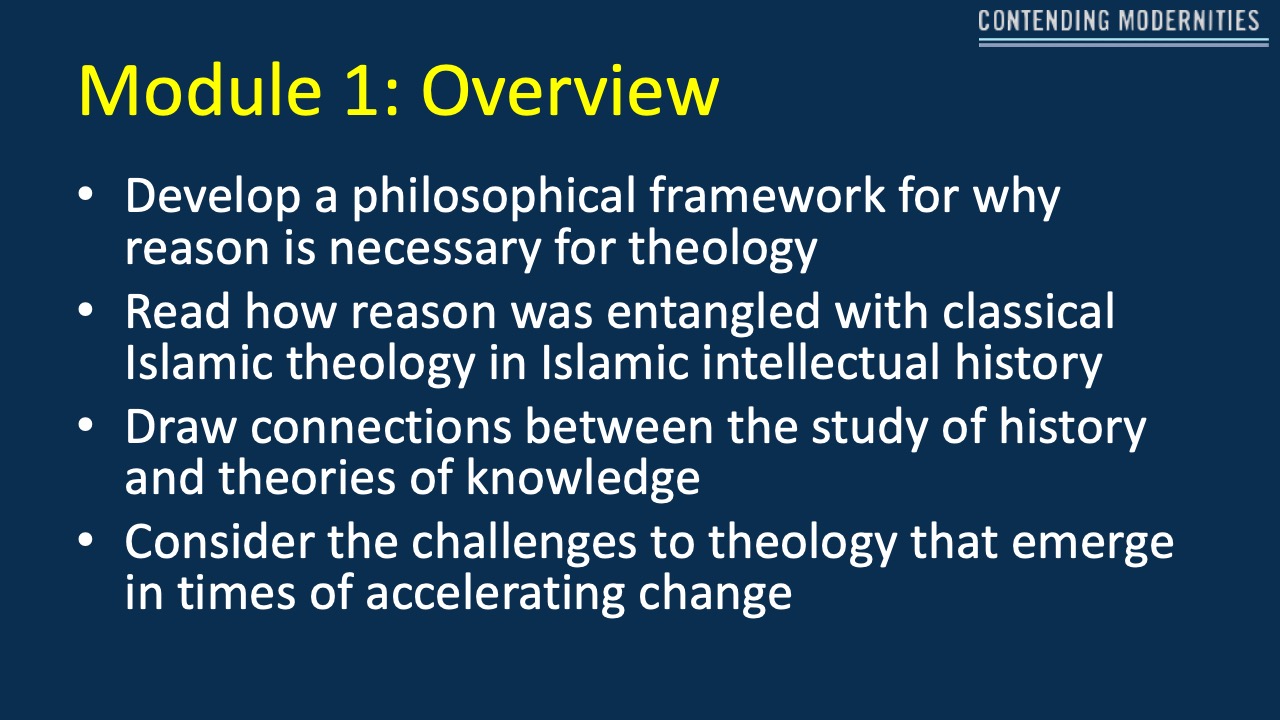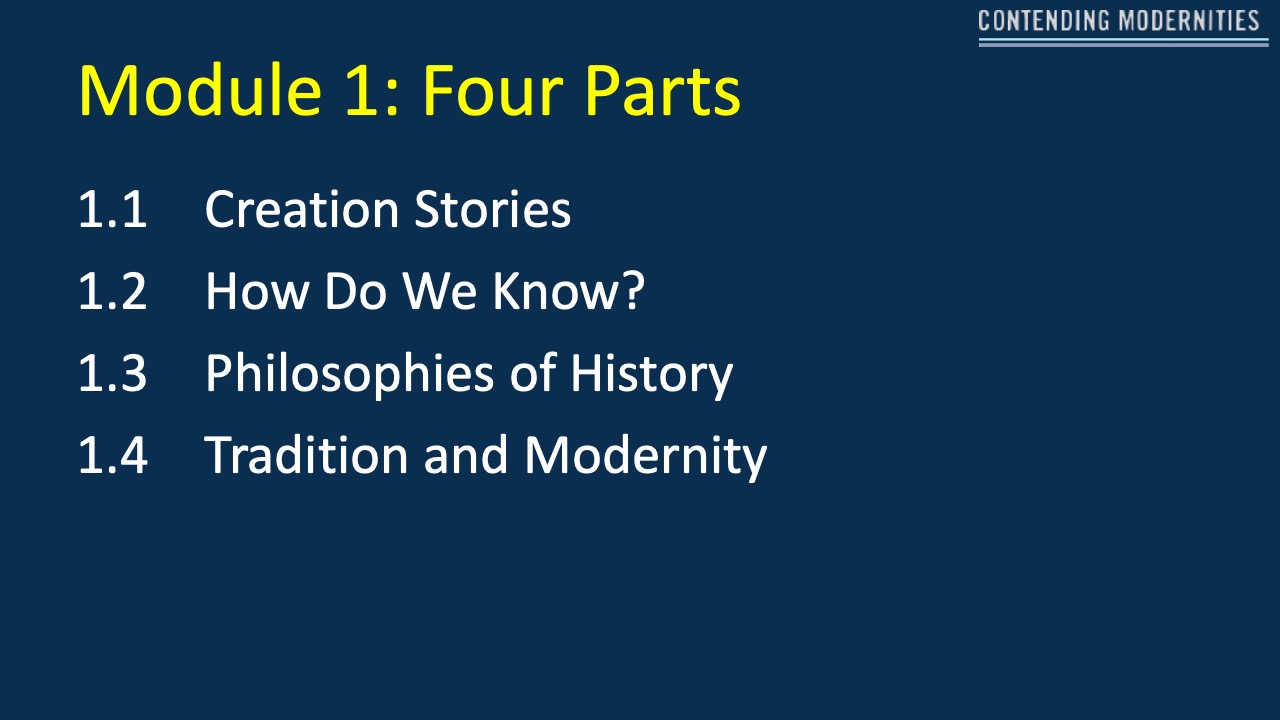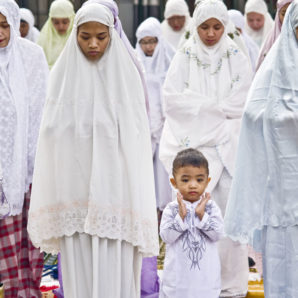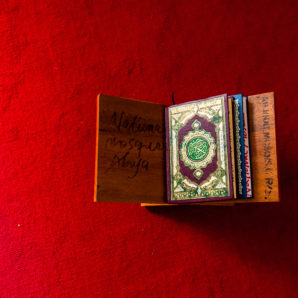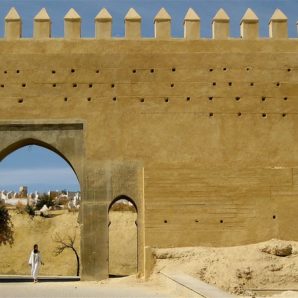1. Conceptualizing the Past
This module begins with an exploration of the multiplicity of beliefs in human cultures about our origins and destinies. The Abrahamic account of creation is one of many. Why do we believe one story is correct and others are not? The Islamic scholarly tradition addressed these same questions of pluralism, and determined that reason was key to the study of knowledge.
The following sections introduce students to epistemology (the study of knowledge) and the study of history. The introduction to history comes through examples of pluralism and theological attempts in Islamic intellectual history to deal with pluralism. This brings us to the role of reason (ʿaql) in theology (kalām). The two main questions that are raised in this module are:
- If theology is justified by reason independent of revelation, then how do changes in our understanding of reason over time influence rational justifications for theology?
- If tradition is our guide, do changes in our understanding of history today change our relationship to tradition?
Link to excerpt from project essay with list of texts used as supplementary reading in original course that do not appear on this site.
Thumbnail: Genesis. Photo Credit: Carl Jones, 2014. CC BY-NC-ND 2.0.
MODULES
1.1 Creation Stories
Why would the Abrahamic story of creation be true while the others are not? Is the story literal or allegorical? In this section, we begin by reading creation myths from around the world, comparing these myths to the Abrahamic story of creation as well as to the new story of the universe being told by science. (Tanti Ruwani/”Wishing a Prayer”)
Read More ⟶1.2 How Do We Know?
How has the Muslim tradition understood the place that independent reasoning occupies in the pursuit of theology? This section introduces students to the rational foundations of Islamic theology, which has also been called philosophical or dialectical theology. (Mark Fischer/“Mosque Book”)
Read More ⟶1.3 Philosophies of History
What are some of the contemporary approaches to the study of history? What is the relationship of history to epistemology and hermeneutics? This section explores the connection between history and philosophy focusing on the differences between the study of history today versus how it was pursued in the past. (Scott Koch/Fez Gate)
Read More ⟶1.4 Tradition and Modernity
How have different aspects of the scholarly tradition been conditioned by human reason? This section engages different theories of ethics that help us systematically arrive at “the good.” Behind different ethical theories lie competing theories of knowledge and of human nature. (Chris Ford/”Moroccan Light”)
Read More ⟶



